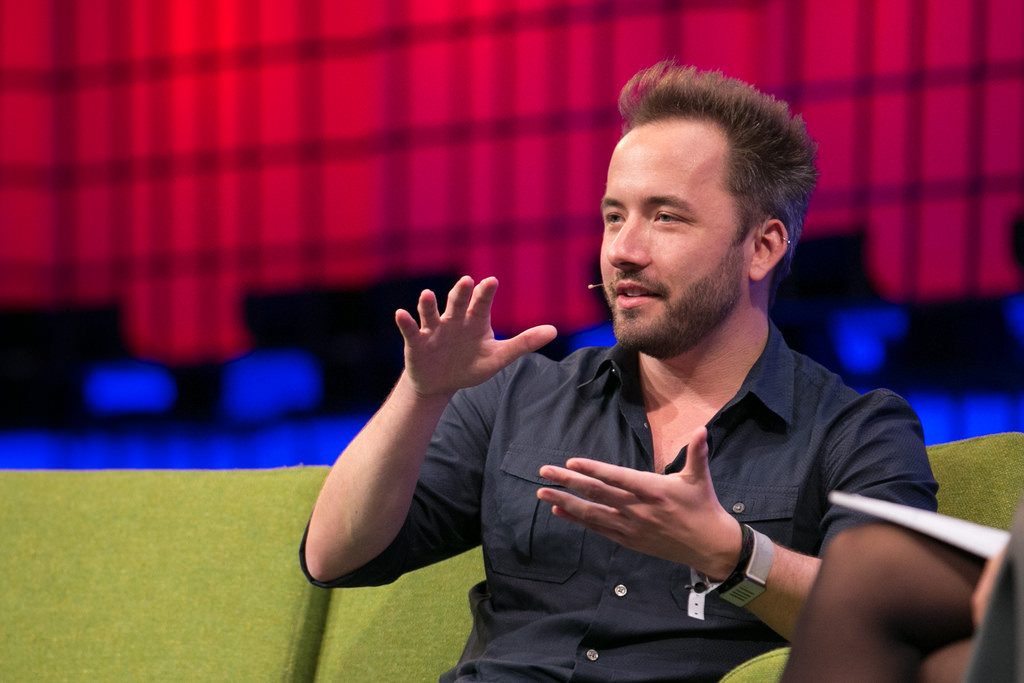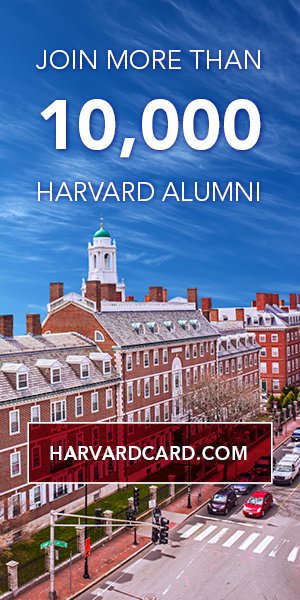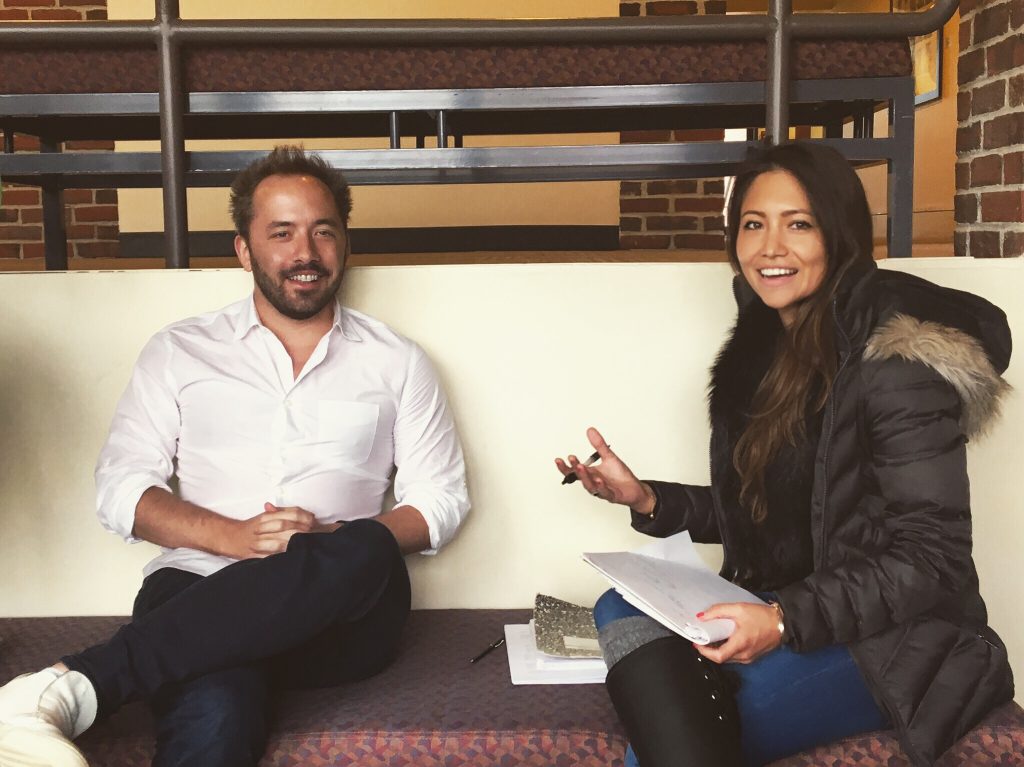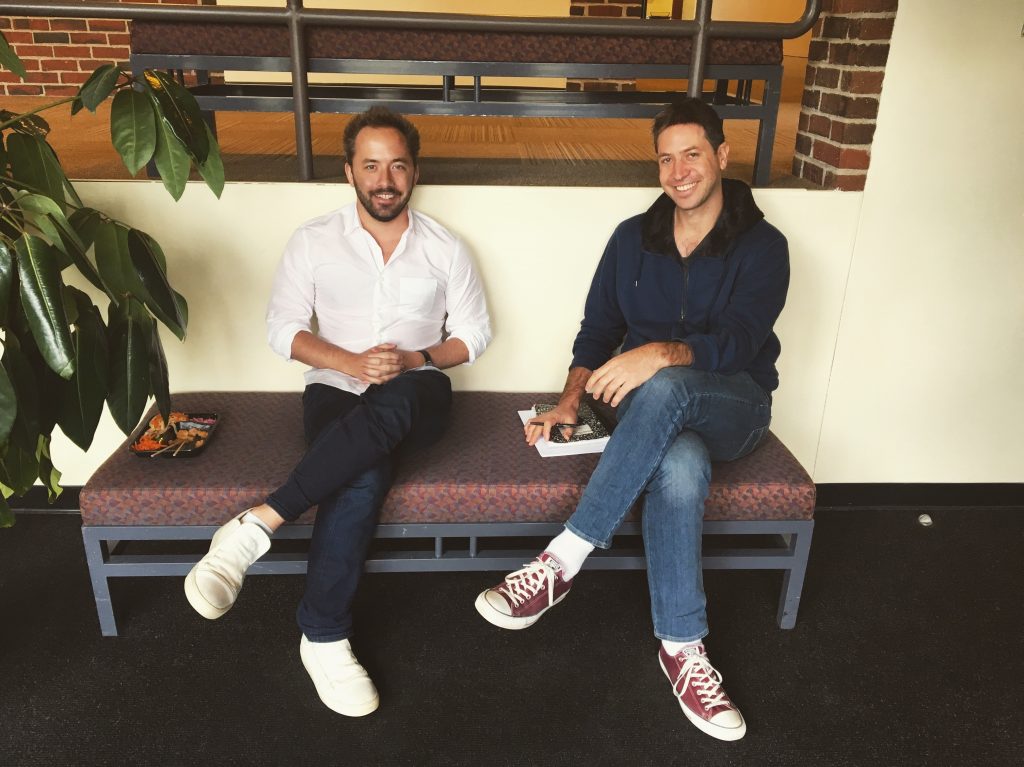

Drew, thank you for taking the time to talk with us, we’re excited to have you. I’d like to take you to the beginning, to the very first days of Dropbox. Some entrepreneurs have a grand vision for their startup to take over the world right from the get-go. Did you ever imagine that Dropbox would become such a massive success?
Drew: Yeah, it went exactly according to plan! (jk). The truth is that I was surprised just like everyone else that Dropbox made it so big. The whole thing started because I was trying to solve a problem for myself. At the time, I had already been running my first company Accolade for a few years, and it was becoming clear that the company lacked a sense of mission. It was me and my co-founder, with no employees, and neither of us was ready to jump on it full time. So I was getting a little tired – because we weren’t really living, but we weren’t really dying either. It was around that time that I started entertaining a few side projects. In one of these projects I decided to hack things together so I can access my stuff on multiple computers – a big problem at the time with no good solution in the market. So while Dropbox was born out of real necessity, it quickly became clear that many people could use something like this. Then the iPhone came along, and now I knew that people would definitely use something like this. However, it was just highly unlikely that it would be us who build it. Because investors would say: “what’s going to stop Google from doing this”?
Sounds like a real concern. How do you answer that?
Frankly I thought Google should do it, and they definitely had all the resourced to do it. That said, building this product would be one of a hundred other things that Google was working on. We, on the other hand, only had one product to focus on. And we had 10 of the smartest engineers we knew from MIT. There was no way that this project number 100 at Google would get the same supply of engineers that we had. So even though Google surely had a bigger team, we argued to investors that Google had other priorities, and they were not going to give it the same focus that we were giving it.
Was there a moment that you thought – “we’re dead”?
There had been a rumor for 5 years about a fantom project at Google named G-drive. So we thought – “well, Google is going to launch it, and most probably it’s going to be good and it’s going to be totally free. That could have been the end of us”. But then again, if Google was going to launch this, what would happen the next day? Apple, Microsoft and all the other large player in this market also needed their own G-drive – and so we thought – we will be right there, ready to run into their arms…:”
PEOPLE CONCEIVED US AS COMMODITY, BUT THEY WERE MISTAKEN TO THINK WE CANNOT DIFFERENTIATE

What made Dropbox succeed when so many other companies fail?
First, there were some misconceptions about this space, one of which was that a file sharing platform was a commodity. While this was true to some extent, a lot of the file sharing had a viral network effect, which means it was a defensible business, just like social media. So this idea of commodity – the notion that we could not differentiate – was widely overstated. Secondly, we got lucky… because this space was overlooked, anyone who did an analysis concluded that this was a commodity business, and eventually decided to stay out of the game. Thirdly, it may have seen easy to built, but from a technical standpoint it was actually very hard. If I had to guess why it took our competitors so long, it’s probably because they didn’t allocate their best talents to building this, and therefore they weren’t going to solve this problem.
Many people who want to start companies tend to overlook the challenges of building a business. Can you tell us about the toughest moment for you as founder CEO of Dropbox, and how did you overcome it?
You really need to get used to this constant roller coaster of running a startup. Even when the company is succeeding, because you’re growing like crazy – a lot of things become dysfunctional and broken pretty quickly inside the company. You’re trying to catch the wave and barely manage to stay on the board. PR is another great example of this complexity: it is very cyclical. Columnists can easily build you up and then tear you down. For example, even after Apple posted their best quarter in business history – people still questioned whether it can succeed without Steve Jobs. All this cyclicality is tough for the founders, by it’s mostly tough for the team, especially those who are early in their careers.
So how do you keep everyone together when things are not going your way?
You have to give people perspective: before Amazon became successful, the company struggled for 6-7 years; Facebook went through some dark times too. But If you’re 27 and don’t have that perspective, it makes sense for you to ask: “are we just a flash in the pan”? So we brought in some of the most successful tech founders out there, and they would tell the team about the tough times that their companies had to go through, and how those times helped their company put on a muscle. Through those stories, we started to build our own resilience.
Who did YOU go to when you needed advice? How does one in the tech community find those advisors?
A wide variety of folks advised us in different times. Our earliest advisors were our investors. For example, Hadi and Ali Partovi – the early investors in Facebook and entrepreneurs in their own rights – reinforced concepts like being very discriminating about talent. As the company grew and we faced a new set of challenges, we also turned to a new set of mentors. Generally speaking, Silicon Valley has a very ‘pay it forward’ culture, and if you’re doing something interesting you’ll usually find that people are interested in helping you.
DREW’S ADVICE TO HBS FRESH GRADUATES: DON’T SPEND TOO MUCH TIME ON MAPPING THE PERFECT PATH

What would be your advice to students who are graduating from HBS, who are either looking to start tech companies or join other tech companies in key roles?
Don’t spend too much time on mapping the perfect path or checking off all the boxes. Some Some think they need a whole portfolio of experiences before they’re ready to start something of their own – but that’s not true. In fact, the earlier you start the clock the more advantages you will have. The best training for starting a company is to join a startup, particularly a small startup, where the learning experience is much more steep. That would get you much closer to starting a company than working at a large company like Google. But, these are not ‘hard and fast’ rules. For every rule, there’s always someone who didn’t follow it and still succeeded.

What is the grand vision for Dropbox for the next ten years?
We see a big opportunity to re-imagine management and how team works. If you make tools better – you make teams better. Even today there is a lot of room for the everyday tools that we all use – emails, text messages, online documents etc. What tools will we have tomorrow, that will make today look like madman? That’s what we’re spending a lot of time of – better tools, better systems.
In his free time he is a huge dog fan and an avid follower of the NBA.



